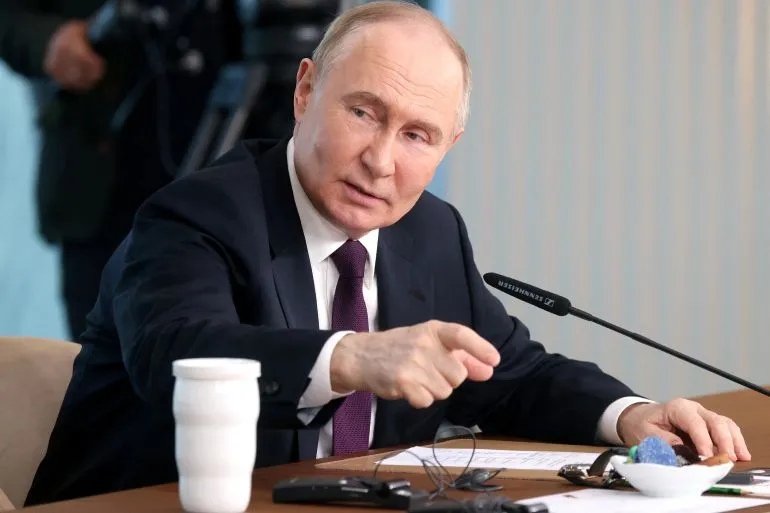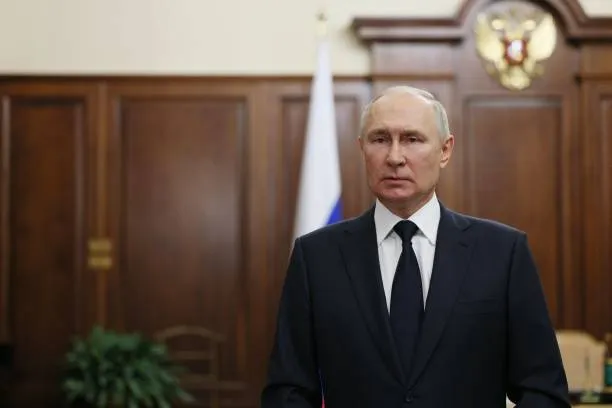Russia’s President Vladimir Putin has faced a significant challenge to his rule with a failed mutiny by Wagner Group mercenaries, including at least three convicted criminals, who took control of the southern city of Rostov-on-Don on Saturday. The city is a strategic port and logistical hub for Russia’s war in Ukraine, and the takeover was the gravest threat to Putin’s rule to date. The mercenaries, who had previously fought in Ukraine, were led by Yevgeny Prigozhin, the leader of the Wagner Group, who ordered them to march on Moscow before they turned back in a failed bid to oust his longtime rival, Defense Minister Sergei Shoigu.
The Wagner fighters, including the convicted criminals, wore masks to conceal their identities, making it difficult to identify them. However, a review of facial recognition software, court records, and social media showed that some of them had previously been in jail. The Kremlin’s decision to allow Prigozhin to recruit thousands of mercenaries from prisons across the country last year has come back to haunt it with the mutiny.
The three identified convicted criminals, Dmitry Chekov, Sergei Shirshov, and Roman Yamalutdinov, had prior convictions for theft, drug offenses, armed robbery, and drunk driving, among other crimes. They were part of a larger group of Wagner fighters who were drawn from prisons across Russia, including those in the Rostov region, where Prigozhin had visited and recruited over 1,000 convicts last September.
The loyalty of these convict fighters to Prigozhin is evident, as they participated in the mutiny and could have been pardoned by Putin if they survived six months in Ukraine. The fate of these convicted criminals is now uncertain, as they have been offered a choice between leaving for Belarus, joining the regular military, or returning to civilian life.

(Via @/Twitter)
Prigozhin’s decision to recruit convicts from prisons across Russia has been seen as a way to give them a second chance at life, and many of them have credited him with this. The success of his recruitment campaign has also raised questions about the effectiveness of Putin’s efforts to rekindle Russia’s military momentum in Ukraine.
The failed mutiny has raised concerns about the stability of Putin’s rule and the ability of the Russian government to maintain control over its military forces. The crisis has also highlighted the role of Prigozhin, a businessman and former security officer, who has become a key figure in the Russian military’s operations in Ukraine.
As the Russian government tries to defuse the crisis, the loyalty of the convicted criminals to Prigozhin remains a significant concern. The failure of the mutiny has put Prigozhin in exile in Belarus, but the fate of his loyal followers, including the convicted criminals, remains uncertain.











































